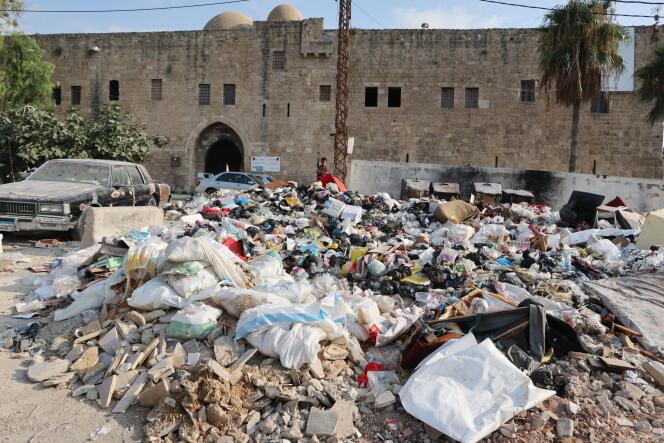


With his hands protected by gloves, Zouhair rummaged through the dumpsters on a street in Sidon, the large coastal city in southern Lebanon, in search of recyclable materials. Plastic, cardboard and cans ended up in a large bag at his feet. "Metal is the best, it's more expensive," he said. Zouhair is a refugee from Palestine who sells his daily finds to a recycling company. A former laborer, aged 68, Zouhair became a ragpicker because of the severe economic and financial crisis underway in Lebanon since 2019. "The competition is fierce. Syrians, Palestinians and Lebanese sift through the garbage cans," he said. On a good day, he earns around €9.
It has become a normal sight in Sidon to see the shadows of adults and children picking through the rubbish, their backs bent under the weight of recyclables fished out of rusty containers. The better-equipped make their rounds by tuk-tuk. These dumpster-divers are often blamed for the dirtiness of the streets because of the ripped bags they leave on the ground once they've finished sorting. But in reality, the collapse of 2019 saw the city return to its problems with garbage. It thought it had got rid of the garbage curse during the 2010s, after overcoming a gigantic uncontrolled landfill that was considered a threat to the entire Mediterranean and had poisoned the daily lives of residents for over 30 years. With a "zero waste" treatment center set up in 2012, Sidon had even avoided the serious waste crisis that plagued Beirut in 2015-2016.
This change, presented as an example for other towns, turned out to be short-lived. In the streets, garbage cans accumulate intermittently, when collection is delayed. Sidon is not alone: Waste management has got worse throughout the country.
The town council has been handling garbage collection since early July, for a transitional period before a private company takes over. Collection had become very uncertain with the previous provider: Its revenues plummeted along with the sharp depreciation of the national currency. Financial problems are sometimes compounded by unforeseen events: Fighting between Palestinian factions in the Ein el-Hilweh refugee camp in Sidon left 11 people dead between July 29 and 31, paralyzed the locality.
The accumulation of waste promises to be a headache for the treatment center, which is located on the seafront opposite an industrial zone and a short distance south of the historic center. It is already dysfunctional. It is managed by the private company INC and responsible for treating waste from Sidon and a dozen other neighboring municipalities, it is operating at less than half capacity (around 180 to 200 metric tons daily, instead of 500).
You have 56.98% of this article left to read. The rest is for subscribers only.
